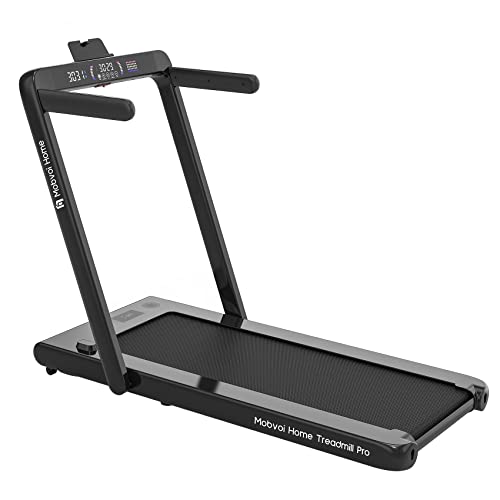5 Lessons You Can Learn From Treadmill Machine
The Treadmill Machine: An Educational Guide to Your Fitness Journey
The treadmill machine has ended up being an essential tool in modern-day fitness programs. Whether one is an experienced professional athlete or a novice trying to get into shape, a treadmill provides a practical and efficient method to attain fitness objectives. This post will check out the numerous elements of treadmill machines, their benefits, different types readily available, and standards for efficient use.
Advantages of Using a Treadmill
Treadmills use various physical and mental health benefits that add to general wellness. Some key advantages consist of:
- Cardiovascular Health: Regular usage of a treadmill assists in improving heart health by reinforcing the heart muscles and enhancing circulation.
- Weight Loss: By engaging in consistent cardiovascular workouts, individuals can burn considerable calories, helping in weight loss and management.
- Joint-Friendly Exercise: Treadmills offer a controlled environment that allows users to adjust speeds and slopes, making it easier on the joints than running on tough surface areas.
- Convenience: Treadmills are specifically helpful for those who reside in areas with negative weather conditions, as they can be utilized indoors year-round.
- Personalized Workouts: Many modern treadmills come equipped with programs and functions that permit users to individualize their workouts for varying intensity levels.
Health Benefits Overview
Benefit
Description
Cardiovascular Improvement
Strengthens the heart, enhancing total blood circulation and endurance.
Weight Management
Effective calorie burning resulting in weight reduction.
Injury Prevention
Reduced threat of injury due to adjustable surface areas and regulated environments.
Motivation and Consistency
Supplies an indoor choice that motivates routine exercise regardless of weather.
Boosted Mood
Routine workout adds to the release of endorphins, enhancing psychological wellness.
Kinds Of Treadmill Machines
While treadmills may appear uncomplicated, numerous types cater to different needs and choices. Here are the main categories:
Manual Treadmills: These need no power and are propelled by the user's effort. They frequently use up less area and are quieter but can present a steeper learning curve for newbies.
Electric or Motorized Treadmills: The most typical type, they include automated programs for speed and slope. They are normally more flexible however require electricity to operate.
Folding Treadmills: Designed for those with restricted space, folding treadmills can be collapsed and stored away when not in usage, making them perfect for small homes.
Incline Treadmills: These machines offer the capability to raise the incline, imitating hill runs for a more effective workout.
Commercial Treadmills: Built for heavy use, these machines are typically found in fitness centers and health clubs and come with a series of features and toughness.
Contrast of Treadmill Types
Type
Source of power
Best For
Area Considerations
Manual
None
Beginners, budget-conscious users
Low
Electric
Plug-in
Varied strength workouts
Medium to High
Folding
Plug-in
Limited space users
Low
Incline
Plug-in
Intense cardio and strength
Medium to High
Business
Plug-in
Frequent gym usage
High
Tips for Effective Treadmill Use
To make the most of the advantages of a treadmill routine, here are a number of suggestions to think about:
- Warm-Up: Start every exercise with a 5-10 minute warm-up at a slow pace to prepare the body.
- Posture: Maintain an upright posture, keeping shoulders back and direct to prevent strain and injury.
- Period Training: Incorporate various speeds throughout exercises (high-interval training) to improve cardiovascular physical fitness and burn calories.
- Usage Inclines: To further improve exercises, add incline choices to imitate hill running, which builds strength in the legs.
- Stay Hydrated: Keep a water bottle nearby, making sure to drink before, during, and after workouts to remain hydrated.
Advised Treadmill Workouts
- Novice's Walk: Start at a moderate pace for 20-30 minutes, slowly including speed as convenience increases.
- Hill Intervals: Alternate in between slope and flat surface areas, sprinting uphill for 1 minute followed by walking for 2 minutes.
- Long-Distance Run: Target a steady pace for an extended duration (40-60 minutes), concentrating on endurance.
- Speed Training: Change speeds every minute, beginning with a light jog to short bursts of running to improve speed and cardiovascular health.
Frequently asked questions
Q1: How frequently should I use a treadmill for effective results?
A1: It is usually suggested to use a treadmill at least three times weekly for 30-60 minutes to see significant results.
Q2: Can I slim down using a treadmill?
A2: Yes, with a mix of regular exercise, a balanced diet, and part control, utilizing a treadmill can contribute considerably to weight reduction.
Q3: Do I need to warm-up before utilizing the treadmill?
A3: Yes, warming up is essential to prepare your body, decrease the threat of injury, and improve workout performance.
Q4: Is running on a treadmill as efficient as running outdoors?
A4: Both have benefits, but a treadmill allows for controlled environments, preventing weather-related interruptions, and may have less impact on the joints.
Q5: Can a treadmill assist with muscle building?
A5: While mainly a cardiovascular tool, adjusting slopes can help engage and enhance specific leg muscles.
Treadmill machines are versatile and can be an important part of a physical fitness journey. By comprehending the various types, advantages, and effective usage methods, people can use the complete capacity of this devices. Whether intending for enhanced Full Record , weight management, or boosted mental well-being, a treadmill functions as a trusted buddy on the roadway to physical fitness.
